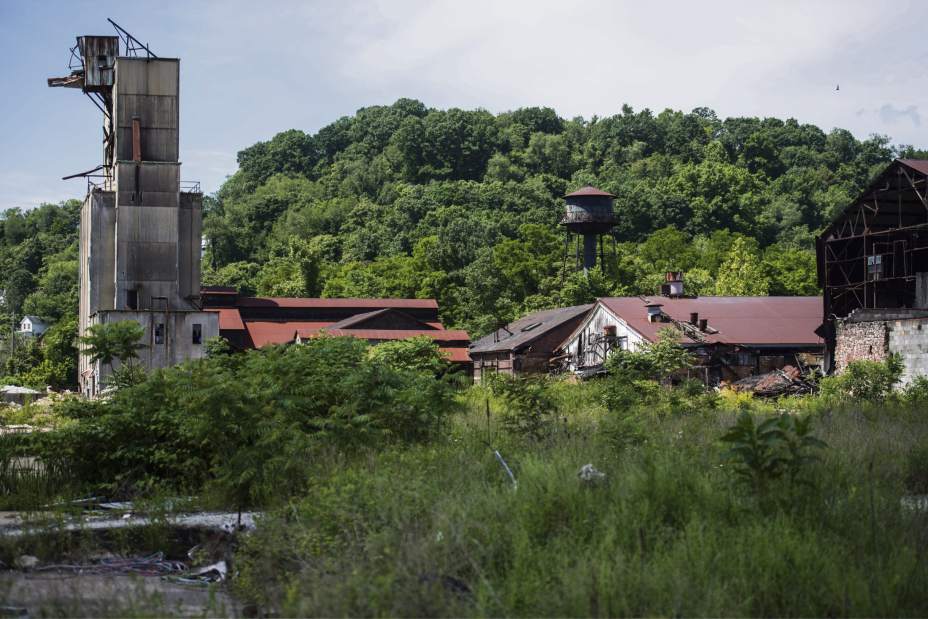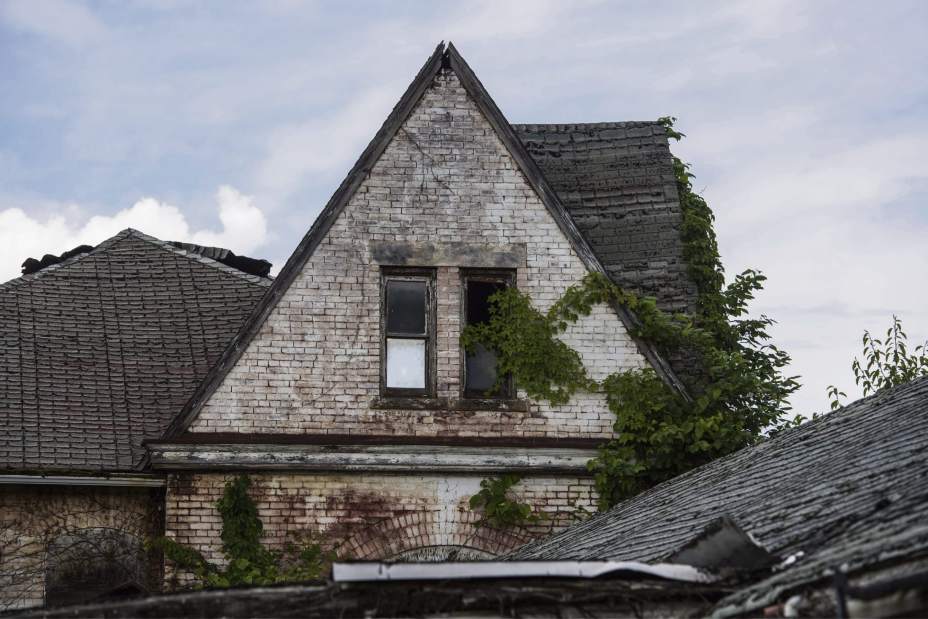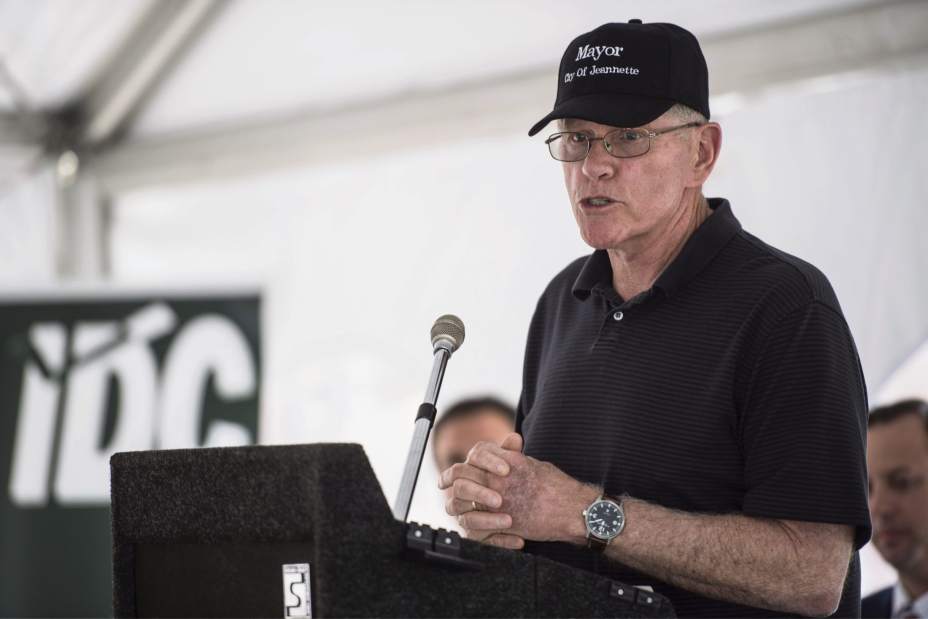Jeannette Glass' next chapter: $6M in demolition, remediation
As a young boy, living next to Jeannette Glass meant constant entertainment for Mark Gogolsky.
Foot and road traffic would be backed up in town near his Sixth Street home during shift changes at the plant, where 1,500 workers once produced most of the world's sheet glass.
“We knew all the whistles, when they would blow,” he recalled. “We used to play in the old glass, in the old cullet.”
But in 1983, the glass factory in the heart of Jeannette was padlocked, and its production buildings deteriorated into sprawling hulks of rusting metal.
A groundbreaking ceremony Wednesday marked the official start of the next chapter in a $6 million redevelopment project — environmental remediation and demolition of the buildings on the 13-acre site.
“It's a shame it took this long,” said Gogolsky, who's now a Jeannette City School District director. He noted the project will benefit the city and school district.
City, county and state officials took part by donning hard hats and ceremoniously taking shovels to dirt in front of the former glass plant to kick off the project spearheaded by the Westmoreland County Industrial Development Corp.
Dennis Davin, secretary of the state Department of Community and Economic Development, announced a $960,300 grant through the Industrial Site Reuse Program. The grant will be added to other funding, including a $1 million loan from the county, to complete the project.
“We want to make impactful investments in these communities,” Davin said, adding that state officials will look for other funding opportunities as the project progresses. “It's unfortunate that somebody owned this property for 30 years and didn't do anything with it.”
New York businessman Abraham Zion purchased the factory for $4 million in 1983 and promised to resurrect it, but it sat dormant for decades. The IDC bought the property in 2012 for $305,000 at a tax sale. Years of court challenges over the validity of the sale filed by Zion, who died last year, stymied plans to clean up and redevelop the site.
After the state Supreme Court upheld the sale, the parties reached a settlement in mid-2016 that allowed the county to take over in September. The property is littered with remnants of glass production, much of it contaminated with asbestos.
An environmental remediation plan has been approved by the state Department of Environmental Protection. The county IDC last week approved a $478,000 agreement with AW McNabb LLC of McKees Rocks to execute the cleanup and demolition. Agency Director Jason Rigone said he expects that phase of the project to begin in June and take four to six months to complete.
Future phases include removing building foundations and footers, excavation, compacting soil, planting grass, extending utilities and building a road. A water tower could remain as a historical element. The project could be complete in late 2018.
Officials expect that once other businesses occupy the site, it will generate an estimated $150,000 to $250,000 in annual property taxes and create as many as 160 jobs.
Acquiring the site was a risk, Davin said.
“We think Jeannette has a tremendous amount of opportunity going forward,” he said. “This thing would've been a hulking eyesore for another 20 or 30 years.”
Collaboration among numerous entities and officials brought the project to life, said Sen. Kim Ward, R-Hempfield.
“The city faced a lot of challenges, and without the cooperation of everybody ... we would get nowhere,” she said. “Something like this doesn't happen overnight, and it never happens through one person. It happens through total cooperation.”
The state grant program has helped similar projects, including the Monessen Riverfront Project, the Industrial Center of McKeesport and the former Nabisco Factory, now Bakery Square, in Pittsburgh's East End, according to department records.
City Council members recalled the plant in its heyday as they stood near the dilapidated remains after the ceremony.
“I've seen it in the golden times to rust, to hopefully more golden times,” Councilman Chuck Highlands said.
Mayor Richard Jacobelli said he looks forward to a blank slate and its possibilities.
“This plant was once the centerpiece of our industrial city right here,” he said. “This long-standing tragedy is now finally over.”
Renatta Signorini is a Tribune-Review staff writer. Reach her at 724-837-5374, rsignorini@tribweb.com or via Twitter @byrenatta.



